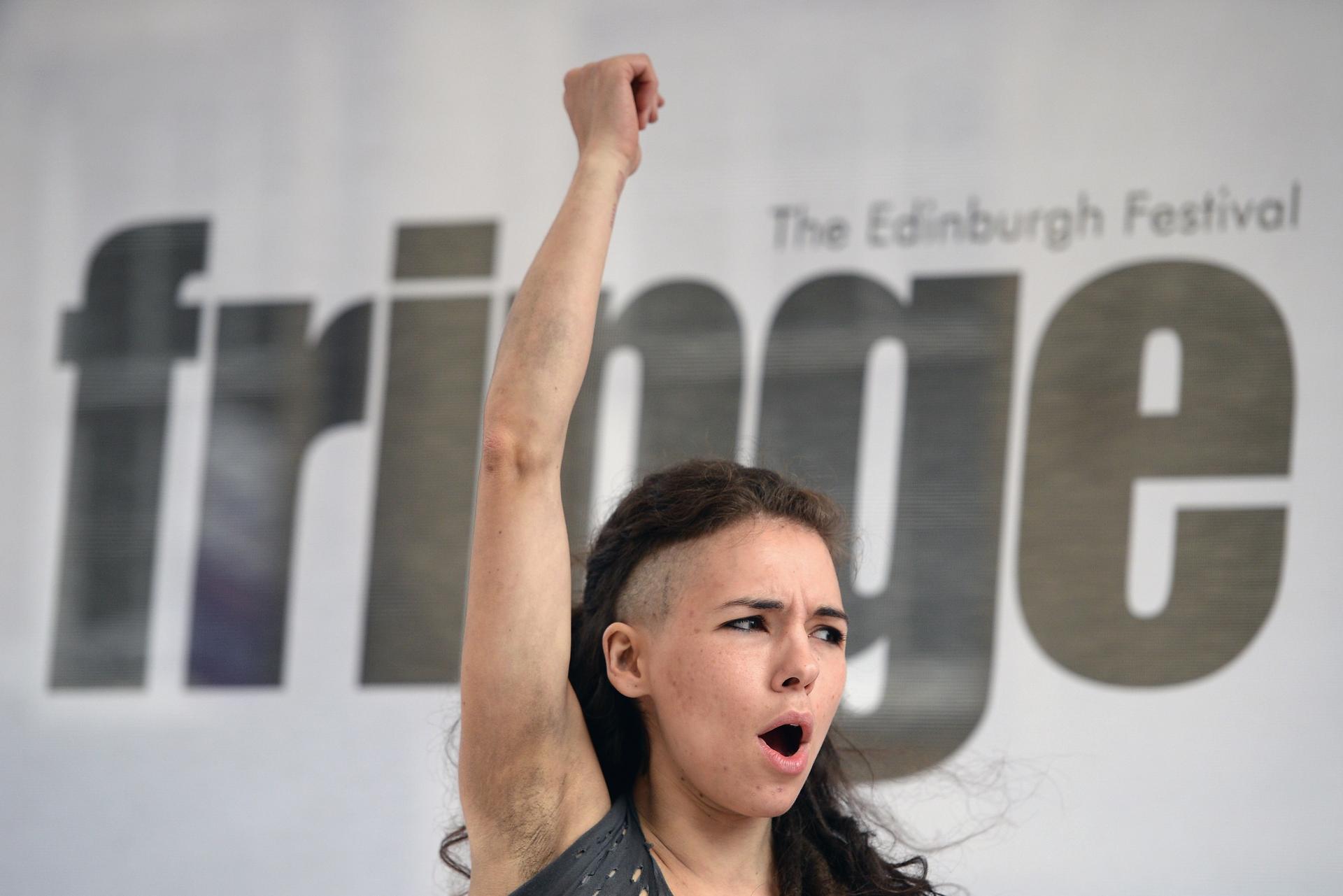Edinburgh’s feminist revolution
EDINBURGH, UK — If there’s one place where print media is still very much alive and well, it’s here, in August.
To walk along the Scottish capital’s cobbled streets is to run a gauntlet of kids with angular haircuts thrusting flyers and free magazines. Every wall seems to be plastered with posters advertising shows at the Fringe, the world’s largest arts festival.
But there’s something different about the faces being advertised this year: There are more women than ever before.
One of the main developments at this Fringe is the dramatic increase in the number of female comedians, up more than 60 percent from last year to almost 200 — even though that means women still front fewer than one in five shows.
Britain’s comedy scene, with its workingmen’s clubs and ribald gags, hasn’t traditionally been very open to women. That’s no longer the case, says Sara Pascoe, whose show about history’s epic romances has won rave reviews at the Fringe this year.
“Comedy has become a nicer environment,” she says. “It used to be a very sexist, fatist, misogynistic place. They were uninviting places and the jokes were nasty.”
Now society is changing, she adds. “Audiences don’t want that any more.”
The increase in female comedians is part of a wider social change in Britain that’s seen a spike in interest in feminist issues, including the banning of topless photographs in tabloid newspapers — spreads known as Page Three — and addressing the gender gap in pay.
“What’s happening at the Edinburgh festival is a reflection of what’s happening on Twitter and blogs and lots of books being published,” Pascoe says. “It’s a cultural thing that’s happening in Britain right now.”
It’s helped that female comics have finally started to receive critical recognition at the Fringe. Last year, Brigit Christie won the main comedy prize — only the third woman to do so in the award’s 33-year existence — and Adrienne Truscott landed the coveted panel prize for “Asking For It,” a show that tackled rape culture and rape jokes. She famously performed naked from the waist down.
Christie accepted the award on behalf of all female comics, saying, “You had better watch out, we’re taking over!”
Among those taking over is English comedian Zoe Lyons. A lively, inventive comic with a caustic wit, she’s spent a decade on the comedy circuit. One of the leading female lights at the Edinburgh Fringe, she says gender doesn’t play a large role in her performances.
“When I started, it didn’t dawn on me that being a woman would make any difference. My main job is to make people laugh,” she says. “I talk about stuff I’m interested in, but that can be anything between the price of lobster and panpipe players.”
One of the main reasons that’s changing, Lyons says, is a new emphasis on narrative and storytelling.
“When you’re paid by a club to do 20 minutes on a Saturday night, you are employed to do it bang, bang, bang, make them laugh,” she says.
In Edinburgh, however, sets are an hour long. “You can be a bit more indulgent,” she says. “Enjoy the time. Don’t worry if there hasn’t been a laugh for 30 seconds.”
Comedy abhors anything that resembles a cozy consensus, however. There are already signs of a backlash against any signs of a feminist orthodoxy.
In her show “Help the Frigid,” Irish comedian Eleanor Tiernan explores the conflict that comes from wanting to make jokes that don’t necessarily always support other women.
“When you start saying to comedians, ‘We’re all on board, No More Page Three,’ people invariably kick off against it,” says comic critic Jay Richardson. “Comedians want to kick against the status quo.”
More from GlobalPost: Kremlin to Russians: No food? No problem
The number of female comedians at the Edinburgh Fringe will doubtless continue to rise. Pascoe expects a first Fringe evenly divided among the genders will take place soon.
However, genuine equality won’t come through numbers, she says, but through an acceptance that gender isn’t an arbiter of funniness.
“If a woman is bad, it’s not because she’s a woman,” she says. “It’s because she’s really bad.”
“If you have a bad night, it’s because you made some mistakes. It’s not ‘Oh, if only had a [penis], it would have been OK.’”
